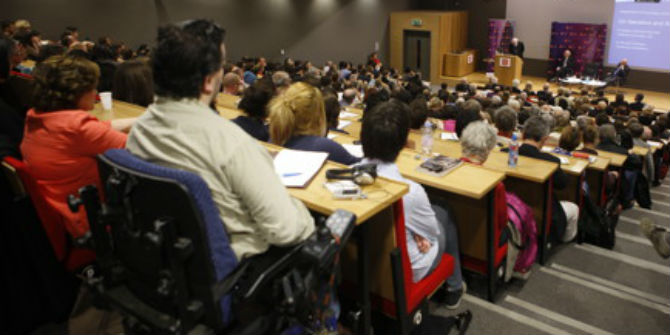This was a question I asked myself a lot when I was in third year and trying to decide what to do with the rest of my life. Naturally, pursuing a master’s wasn’t the only option available to me, and I knew many people who had survived without one just fine. Besides, taking on an extra degree meant getting into more student debt, which was a substantial downside. The added problem with a master’s is that the loan available to UK students—currently valued at £10,609—is not enough to cover the tuition fee for many courses at universities across the country, not to mention living costs and other basic expenses such as transport and food.
Financially, it’s certainly a big commitment which is enough to spook many people away. The master’s experience is a big expense, no doubt, but funding is widely available to support bright students, especially at LSE. I’m able to pursue my studies because of the funding I received through LSE’s Graduate Support Scheme (GSS), and I know other students who are here thanks to the GSS or alternative scholarships which the university hands out every year. Part-time jobs are also an option for students in need of extra cash, and there’s never a shortage of those in a place like London. Where there’s a will, there’s a way.
Money aside, it can still be a difficult decision. Do I want to spend an extra year writing essays and stressing over exams? Isn’t my undergraduate degree enough? Will it really make me stand out when looking for a job? All these questions went through my head, and I’m still figuring out the answers. But I’m at LSE, right? I must have come to some kind of conclusion?
Yes! We can write down the pros and cons and calculate the opportunity cost of spending another year out of work all day, but what mattered for me in the end, was the opportunity to be a student for an extra year, to open my mind to new ideas and new challenges, and to learn something completely new.
For me, it was the chance to expand my knowledge of history by learning how to approach history from an economic perspective, something which has really helped with my understanding of the economy, the global order, and the society we live in today. For others, it was the chance to take their career in a new direction, or to take out a year and truly pursue a subject they’re passionate about, or to start their career in academia. Doing a master’s has also given me some breathing space to figure out what I want to do with my career when I graduate. As part of the LSE, I have full access to a range of career services, from fairs to talks, to workshops.
Meeting so many likeminded people, taking part in societies, spending a ridiculous amount of time procrastinating, it’s all part of the experience that you only get as a student. Plus, another qualification looks pretty nice on your CV, let’s not forget about that.
To anyone who is asking themselves ‘how do I know if a master’s is right for me?’, I recommend to reflect on your current position and to consider where you can see yourself after you graduate from your undergraduate degree. There isn’t a right or a wrong answer, and you should come to your own conclusion, though it’s always helpful to talk to friends, family, and career advisors at your university. I can’t give a clear-cut master’s eligibility criteria because there isn’t one, but what I can do is share my own experience, which I have done here.
One more piece of advice. The essays and the exams aren’t really that bad . . . as long as you don’t leave them to the last minute!





